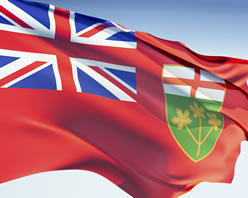Trans-Inclusive Drug Rehab and Alcohol Treatment Programs in Canada
As part of Pride Month we are making it easier for LGBT Canadians to find LGBT-friendly drug rehab and alcohol treatment programs in Canada, and an important part of that is identifying trans-inclusive drug and alcohol treatment in Canada. A big barrier to treatment is stigma, or at least perceived stigma, and it is understandable that many trans people may feel apprehensive entering residential treatment that is often segregated by gender. However, the good news is that BC, Manitoba, and Ontario all have explicitly trans-inclusive drug and alcohol treatment centres. Other provinces do have drug rehabs that are trans-friendly but it isn’t necessarily advertised and those seeking treatment need to ask each centre their policy. For an overview of LGBT drug and alcohol treatment options in Canada, see our blog post here. Trans-Friendly Drug and Alcohol Treatment in BC (Vancouver and Victoria) British Columbia is home to multiple inpatient treatment centres, both public and privately funded, that explicitly state they welcome trans-individuals. Heartwood Centre for Women includes transgender women and Central City Lodge is a men’s treatment program that includes transgender men. Pacifica Treatment Center and Turning Point Recovery are both co-ed programs that welcome all genders. There are also many outpatient offices that actively welcome LGBT people, like LGBT-2S drop in group and the Vancouver Addictions Matrix Program (VAMP) outpatient program for male-identified clients. Now Canada Society in Kelowna, BC is a great program that offers many services to women in the area, including trans women. Trans-Specific Drug and Alcohol Rehabilitation in Manitoba Manitoba is one of the most progressive provinces in Canada in regards to healthcare and makes an effort to accommodate all of its citizens. The majority of the public drug and alcohol rehabs in Manitoba have private rooms, and trans clients are given priority for these rooms to give them the comfort and privacy they may miss in the dormitories. Parkwood Treatment Centre in Brandon is a co-ed program that has private rooms for transgender individuals upon request. The Salvation Army program in Winnipeg accepts all genders in their facility. Also in Winnipeg, River Point Centre for men includes transgender men, and River House for women includes transgender women. A special mention for Manitoba is that its publicly funded programs welcome those on Methadone and Suboxone maintenance, a policy that has recently been announced as the best standard of care. Trans-Inclusive Drug and Alcohol Treatment in Ontario Toronto is the main hub for LGBT specific treatment in Ontario. CAMH in Toronto has Rainbow Services that provides inpatient and outpatient treatment as well as many other services for LGBTQ people struggling with mental health and/or addiction. The Chinese Family Services of Ontario also offers outpatient mental health, substance use, and problem gambling programs and services for LGBT people. Sherbourne Health Centre also in Toronto offers counseling and support for people who identify as LGBTQ. For contact links and further information about the resources listed above, go to our LGBT specific page here. If you or someone you know is struggling with drugs or alcohol and is wanting trans-inclusive drug and alcohol treatment in Canada, contact our specialist for assistance. JMC 2018.05.24 The post Trans-Inclusive Drug Rehab and Alcohol Treatment Programs in Canada appeared first on Canada Drug...
Drug Fact Sheet: Methadone and Suboxone
North America is in the grips of an opioid epidemic and on the front lines of pharmaceutical relief are Methadone and Suboxone. Many Canadian cities, especially Vancouver, Calgary, and Toronto are feeling the effects of hundreds of deaths due to opioid overdoses. This fact sheet will help decipher exactly what Methadone and Suboxone are, how they help opioid users during detox, and what changes are happening in Canada to help more people access these medications. Interested persons can browse this website for a listing of the best public and private drug rehab and alcohol treatment centres in their province of city. What are Methadone and Suboxone? A 2013 Canadian review outlines what Methadone and Suboxone are and how they differ. Methadone is an opioid receptor agonist. Suboxone is a combination of an opioid receptor agonist (Buprenorphine) and an opioid receptor antagonist (Naloxone). Methadone attaches to the opioid receptors in the brain and blocks the high from opioids like codeine and heroin. It was originally developed in 1937 to help those suffering from extreme pain. Methadone today allows people to manage the often painful opioid withdrawal symptoms while also preventing them from experiencing a high if they do go back to illicit substances. Without pharmaceutical intervention like this, over 80% of people who detox from opioids go back to using substances very shortly after. Buprenorphine, a component of Suboxone, helps aid in the relief of withdrawal symptoms as well, but is not as strong as methadone. Combined with Naloxone it creates Suboxone. The addition of Naloxone is to prevent abuse of the medication. If someone were to inject Suboxone instead of taking it as prescribed (ie. tablet form) the Naloxone gives sudden severe withdrawal symptoms. The addition of Suboxone to doctor’s repertoire is clearly needed. In 2013 in the USA, Suboxone sales outpaced both Adderall and Viagra combined. Suboxone only became legal in Canada and the USA in the last ten to fifteen years so studies on its effectiveness are young. However, researchers so far believe it to be much safer than Methadone due to it being harder to abuse. Recent Prescribing Changes Until March 2018, accessing Methadone could be difficult for Canadians in rural areas like Northern Alberta and the Atlantic provinces. The federal government had Methadone classed in a way that doctors needed to apply for an exemption in order to prescribe it. Thankfully, the Health Minister recently announced changes so that doctors can prescribe methadone and prescription heroin without an exemption. Before this, only certain provinces like BC, Saskatchewan, Ontario, and Quebec had provincial guidelines that allowed for more leeway. This was not the only interesting announcement to come out in March. A brand new set of guidelines were released on behalf of the Canadian Research Initiative in Substance Misuse that gave doctors in Canada a much better idea of what they can do to help those with opioid problems. The new guidelines recommend that family physicians should be prescribing Suboxone as the first line of treatment (with Methadone as a secondary option); that they should treat patients with opioid addiction as chronic condition patients like those with diabetes and heart conditions; and that detox should not be recommended unless the patient can go immediately into long term evidence-based treatment. Withdrawing from opioids, even with medical supervision, puts the substance user in a position to overdose should they relapse, and many do. The guidelines note that many residential treatment facilities are abstinence-based, and so do not allow people stabilized on Methadone or Suboxone to enter treatment. The recommendation is that these inpatient rehabs use these medications to...
LGBT Specific Drug Rehab, Alcohol, and Addiction Treatment Options in Canada
June is Pride Month in many parts of North America, in acknowledgement Canada Drug Rehab wants to make it easier for LGBT Canadians to find LGBT specific addiction treatment for drugs, alcohol, or other substance abuse issues. While we are all human, members of the LGBT community are under more external pressures due to a heteronormative society and can be more susceptible to drug and alcohol use. Here we will discuss why some in the addiction field believe it is important to have LGBT specific addiction treatment in Canada, and how to access LGBT-friendly drug rehab or alcohol treatment programs whether you are in Toronto, Vancouver, or anywhere in between. The Case for LGBT Specific Drug, Alcohol, and Substance Abuse Treatment in Canada There are many reasons people choose to start using illicit substances, and keep using substances. Stress, anxiety, trauma, peer use, mental illness are some of the many reasons both LGBT and straight people use drugs and alcohol. However, there are some LGBT specific pressures that can add to the reasons why LGBT people use substances 2 to 4 times the rate of the rest of the population. Homosexuality was illegal in Canada until 1969 and even after many LGBT people were not welcome in a lot of places. Underground gay and lesbian bars were some of the only places LGBT people could socialize, and this bar-centric culture has continued to today. A lack of non-bar queer space makes it hard for LGBT people trying to get sober and remain in their communities. Another umbrella reason for high rates of use is the lack of acceptance by families, friends, and society at large. Having to live a lie weighs heavily and coping with stigma and/or trauma once coming out can be a large trigger. Due to these and other reasons, some addiction professionals believe there is a need for readily available LGBT specific addiction treatment in Canada. While most counselors should already be sensitive to these issues, LGBT people do not know what to expect showing up to an outpatient group meeting and may feel very uncomfortable sharing personal details. Rainbow Health Ontario recommends that health care providers offer tailored services including trans specific, include chosen family members in the process, and get training if they are unsure how to provide the best care. Of course it all depends on the individual. Many LGBT people are completely comfortable with their sexuality, and those struggling with substances may not feel they need LGBT specific addiction treatment. However, if you would prefer LGBT centered drug and alcohol treatment, Canada Drug Rehab has an entire section dedicated to it here. How to Access LGBT Specific Addiction Treatment in Canada There are some LGBT specific addiction treatment centres in Canada, outpatient and inpatient, but they can be hard to find. If you live in Toronto, Ottawa, Kingston or anywhere in Ontario, connect with Rainbow Health here to access their addiction services directory. British Columbia has a few specific LGBT service points, mostly in Vancouver, the Lower Mainland, and Victoria, and these outpatient offices can direct people to counselors and programs that are LGBT focused/friendly. However, the best place to find LGBT friendly drug and alcohol rehab and resources is right here in the specialized programs section of Canada Drug Rehab. BC, Manitoba, and Ontario are well represented and if you are from another province looking for LGBT specific addiction treatment in Canada contact our specialist here for assistance. References: Rainbow Health Ontario: LGBTQ People, Drug Use & Harm Reduction Here To Help BC: Substance Use in Queer and Trans...
World No Tobacco Day: Top 3 Quit Smoking Apps
There are a multitude of apps out there to help you to quit smoking. May 31st is World No Tobacco Day and the perfect time to puff on some fresh spring air. LIVESTRONG MyQuit Coach 4.4 stars on the Apple App Store This app is a favourite on the app store. Create your own plan, work towards achievement badges, and take advantage of the online support community. Quit Pro While this app has less reviews to go by and costs 99c it might just be the motivator you need. It has Quit It, Health, and Targets features to help people with different motivations to quit and succeed. Quit It dishes somewhat scary facts like the amount of chemicals in cigarettes, Health is a multi use tracker for things like how much tar has left your lungs, and Targets allow you to make financial goals with your savings. Quit It Lite 4.8 stars on the Apple App Store Don’t be fooled by the ‘lite’ name, this app might be the best of the three. Similar to Quit Pro, Quit It Lite lets you know the ways in which your health is improving, as well as goals to reach with all your saved money. Additionally, there are achievements to unlock, as well as a profile you can customize with cost per pack, currency, and even how much tar is in the brand you buy. Why Quit Smoking? Are you still on the fence? The World Health Organization (WHO) established World No Tobacco Day to raise awareness about the negative health implications of tobacco. Many smokers do not know the danger they are putting themselves and others in when they smoke. Learn more about tobacco in our Drug Fact Sheet. The focus of the 2018 WHO campaign is the association with heart disease. Many people know tobacco can lead to lung cancer, but did you know tobacco use is the second leading cause of cardiovascular disease? However, many of these ill effects are reversible, and a healthier life awaits after quitting. Below is a three month timeline of health improvements after quitting smoking: 20 mins – heart rate and blood pressure drop 12 hours – carbon monoxide levels drop to normal 2-12 weeks – circulation, lung function improves The health benefits of quitting smoking don’t stop after the first few months. After a year, your risk of developing coronary disease halves. In another 5 to 15 years your stroke risk will drop to the same as a non-smoker. At the 10 year mark your risk of lung cancer halves and risk of developing other cancers drops too. If you are trying to quit smoking, try out one of these apps and comment below to let us know how you are going. Tobacco is a drug, and like other drugs can be addictive. If you or a loved one are facing any type of addiction, use this website as your resource to Canadian drug rehabilitation and alcohol treatment programs. References: WHO: Tobacco Free Initiative WHO: World No Tobacco Day Drug Fact Sheet: Tobacco JMC: 2018.04.26 The post World No Tobacco Day: Top 3 Quit Smoking Apps appeared first on Canada Drug...
Shinrin-Yoku: An Effective Ecotherapy for Drug Rehab, Alcohol Treatment, and Addiction
Shinrin-Yoku, also known as Forest Bathing, “is a traditional Japanese practice of immersing oneself in nature by mindfully using all five senses”. Often led by a guide, these forest baths ask participants to walk slower in order to pay attention to the colours, smells, and sounds found in the forest. This reconnect with nature is designed to slow us down to our natural state and disentangle the mind from the voracious pace of modern life. With its efficacy so well-known, Japan made shinrin-yoku a part of its national health program in 1982 to encourage its citizens to recharge in its green spaces. Forest Bathing Studies A study involving nearly 500 Japanese residents with acute and chronic stress showed those with chronic stress “reported the greatest reduction in subjective feelings of hostility, depression, and anxiety as a direct result of time spent in the forested environs.” Research from around the world reiterates the Japanese findings, that time spent in green spaces reduces acute psychological distress. A 2009 Korean study looked at 63 depressive disorder patients: 23 who would receive their therapy sessions in a forest, 19 who would receive their therapy in hospital, and 21 in the control group receiving regular outpatient management. The forest group attained a remission rate of 61%, significantly higher than the 21% in the hospital group and 5% in the control group. Researchers believe the Cognitive Behavioural Therapy they were employing lends itself to being used in a forest setting, and that the two tools complement each other. Both of these studies measured salivary cortisol which is tested as a biomarker of stress. In both instances these salivary markers were significantly reduced in those participating in forest bathing. Shinrin-Yoku and Addiction Perhaps most interesting is that another study, Korean patients with known alcohol addiction and high depression scores all benefited more from a forest therapy camp than patients with lower scores of alcohol abuse and depression. Those over 40 and with severe levels of depression showed the most significant improvement. The researchers concluded that “the forest therapy camp can considerably reduce and ameliorate the depression levels of alcoholics”. Because the philosophy of shinrin-yoku originates from Japan, Korea, and China, there has been little research or implementation of forest bathing in Western countries. Shinrin-yoku providers in Japan are accredited and monitored, whereas anyone can say they are a practitioner in the unregulated US and Canada. However, it is hoped that with more regulation and integration this therapy technique can help people in Western countries as it has helped those in Asian countries. References: ‘Forest Bathing’: How Microdosing on Nature Can Help With Stress The Influence of Forest Therapy Camp on Depression in Alcoholics The Effect of Cognitive Behavior Therapy-Based Psychotherapy Applied in a Forest Environment on Physiological Changes and Remission of Major Depressive Disorder Shinrin-Yoku (Forest Bathing) and Nature Therapy: A State-of-the-Art Review JMC: 2018.04.26 The post Shinrin-Yoku: An Effective Ecotherapy for Drug Rehab, Alcohol Treatment, and Addiction appeared first on Canada Drug...
Provincial Snapshot: Mental Health and Addiction Treatment in Quebec
This month’s Provincial Snapshot will take an all encompassing look at accessing mental health, drug rehab, alcohol treatment, and addiction treatment in Quebec, and the policies underpinning these services. In months past we have split this into two blogs. However, we are unfortunately all Anglophones in the office so the resources available to us are limited and we are unable to go into depth about the government policies on mental health and addiction treatment in Quebec. Luckily, we will be linking to helpful provincial government websites that provide French language mental health and addiction treatment information. How to Access Mental Health and Addiction Treatment in Quebec A good starting point to finding drug and alcohol treatment programs in Quebec, is right here on this website. Just browse the navigation for “Quebec.” There you will find the link to access public resources in Quebec for alcohol treatment, drug rehabilitation, other addiction and substance abuse resources, as well as helpline phone numbers. Select your health region here from the provincial government’s website to get resources that are close to you. Once in your home region’s webpage you will see Ressources publiques and Ressources privées ou communautaires certifées. Similar to the other provinces covered so far, to get access to public services you must first be assessed and referred. Under Ressources publiques will be a listing for your closest mental health and addiction outpatient office. Some of these offices provide treatment right on site, and others will refer you on. Underneath that first important public resource will be Ressources privées ou communautaires certifées, a list of private and/or community resources. In Quebec the government certifies all healthcare providers so even though it may be a private clinic, you will know it has been verified by the government first. All kinds of services are listed here from public detox to private residential treatment. If you need more help navigating the options available to you, contact our specialist here. Provincial Government Mental Health and Addiction Treatment Policies In 2015 Quebec released their latest 5 year mental health action plan. The 2005-2010 Action Plan led to the development and implementation of the CSSS network, responsible for first line mental health services. The 2015-2020 Action Plan is designed to reinforce these changes while improving practices and service response times. The four main components of the current Action Plan are: respect the rights of people with mental health problems; tailor care and services to young people as they move from childhood to adulthood; improve care through clinical and management practice developments; continuous improvement of quality and delivery of mental health care. References: Quebec Alcohol and Drug Information and Referral List of Health Regions Faire Ensemble et Autrement: The New 2015-2020 Mental Health Action Plan JMC: 2018.04.26 The post Provincial Snapshot: Mental Health and Addiction Treatment in Quebec appeared first on Canada Drug...









